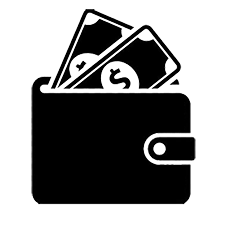
Feb 11•5 min read
The value of what you own

[Escucha o lee este artículo EN ESPAÑOL]
In our previous newsletter, we stated that the Internet of Value - the internet 3.0 - is coming next. This new Internet will enable users to transfer 'value' directly.
Value, Price, and Money. Three concepts we must not mix up.
What is ‘value’. Value is all and everything that we consider valuable: things and abilities, products and services, our data, the time we spend on the web, attention, experience, and for artists their digitized works of art or digital art works. Everything that might be interesting for an exchange, to sell, to negotiate can be considered already today a ‘valuable’ digital asset…
In any case, the value that we attach to something is not its price. Value is much more than the price of or for something.
We call ‘price’ that which is given to someone in exchange for something they possess which is valuable to them. If it is an art work or even artist’s services, ¿who sets up the price? We might think that the artist is the one who should do it, but sometimes that is not the case: a client might commission him a painting, and even sometimes will give him the means to reach a much larger audience (in the case of a gallery owner, an editor, a record company…). The ‘price’ is agreed between the seller and the buyer, depending on the market’s situation. As an example, the price of tickets to some shows might depend on the artist’s pull.
A walk along the river in my village doesn’t have a price, especially if I start remembering it in the midst of a lockdown in the city… Everyone here can share their personal examples, if you want. Because indeed, there are some things whose price is imposible to define, and least of it with money. However, ¿is price always a determined amount of money?

‘Money’ is the most common MEAN in which we indicate the price of something valuable to us. Money is the means that facilitates the exchange of value (products, services, etc…), and therefore becomes in a representation of value. In this sense, money is a measure of value, but it does not indicate the absolute value of something. We often hear the saying that old masters’ paintings “are worth millions of dollars”, for instance.
Money has evolved throughout history. Nowadays, we use what we call ‘fiat currency’ (dollars, euros, pounds…). This currency is regulated and released by central banks that depend on international or national administrations. Prior to that, gold was the standard that regulated the value of money. Unfortunately, this is not the case anymore, and so these central banks have the inmense and dangerous power of being able to choose the value of money: the more they print, the less value it has, obviously.
Value, Price, and Money on the internet
There are millions of stores online. Some big (like Amazon), and of course little ones as well, that sell us their products in exchange for a transfer from our credit card, just like in the local store in your neighborhood.
Then there are also services, such as the ones that allow us to communicate with one another (social networks included), but also many others. They all are advertised as free, meaning we can enter them without having top ay any price in money.

How CAN they be free? And even more redundantly, how on earth are they making all that money if they are free? That is because we pay the price for their services with something that is not money: our DATA.
The value of your data
The value of data is huge for those who offer us these technological services (social networks, media, the press…), and that is because these data can predict, and even modify, our behavior base don how they have been processed (through AI specially). They call this manipulation a “personalized experience”, however it could also be called data-trafficking. Whoever has data has also the power to make a business successful or not, and these “behavioral predictions” are the main fuel of many companies that buy these data to the original collectors (Google, Facebook…).
Many users say they don’t mind giving up all this data… but the great majority don’t even consider it because they are fascinated by a service that appears to be ‘magical’… And indeed, technology offers us wonderful solutions, but many times we are victims of this wonder for what is new, without having the time to reflect if we actually need it. Therefore, we pay the very high price of our data, giving up our privacy and personal information (so what is most dear to us) without giving it too much thought.
In the web 2.0, the artist gives up his data just like any user. However, on top of that, they also lose their intelectual property when they upload a digital file to any platform, thus making it really difficult to be remunerated fairly for it, because the artist depends on these platforms. The artist might even lose track of his/her followers and fans, whom he/she cannot contact outside of the social networks… Therefore, the artist is trapped by these networks, for whom he/she is actually working without even noticing. If you’re an artist, and you’re interested in how to start escaping this nightmarish situation, keep reading this newsletter.
In the Internet of Value, you will be able to get back the control over your work, manage your rights, and be fairly compensated for the value you will bring to those who want to enjoy your works.
Stay with me and I will tell you how…
